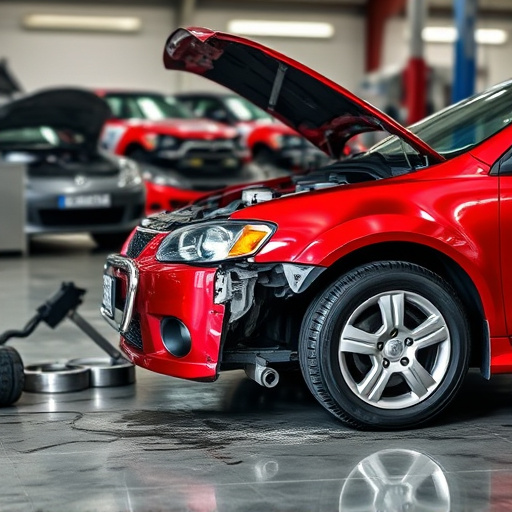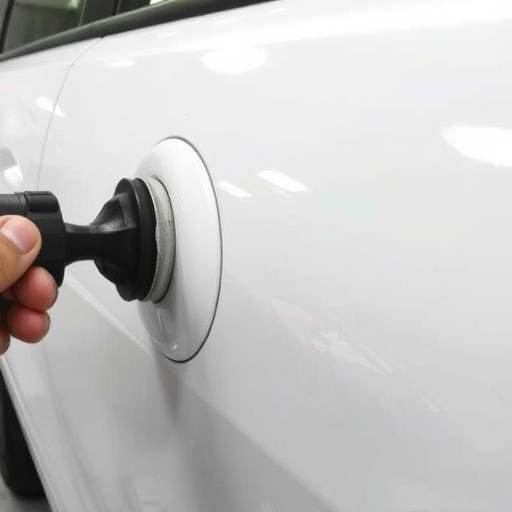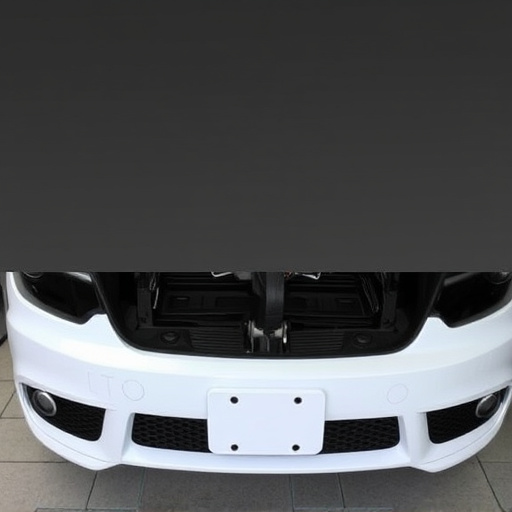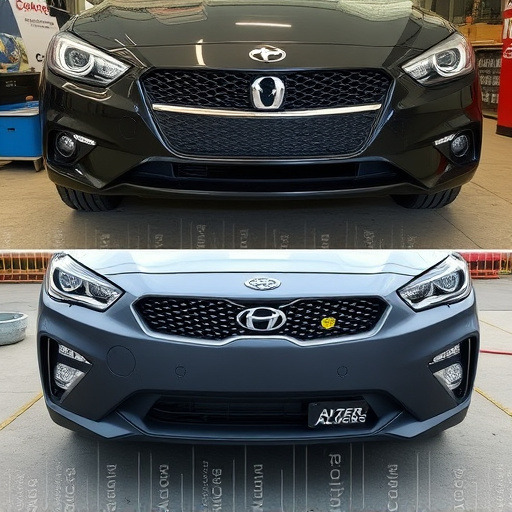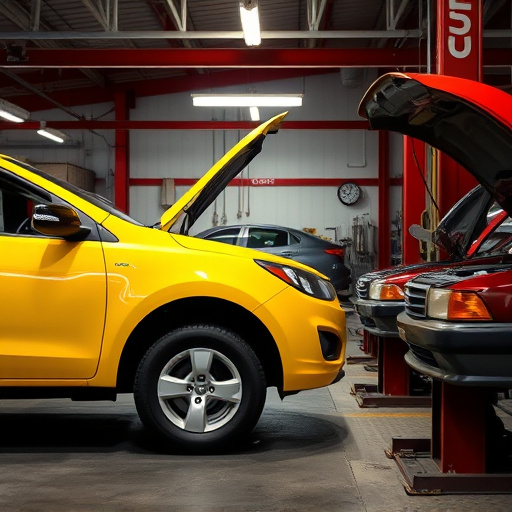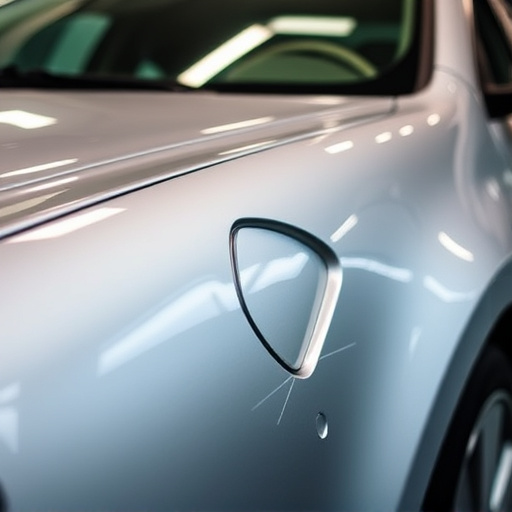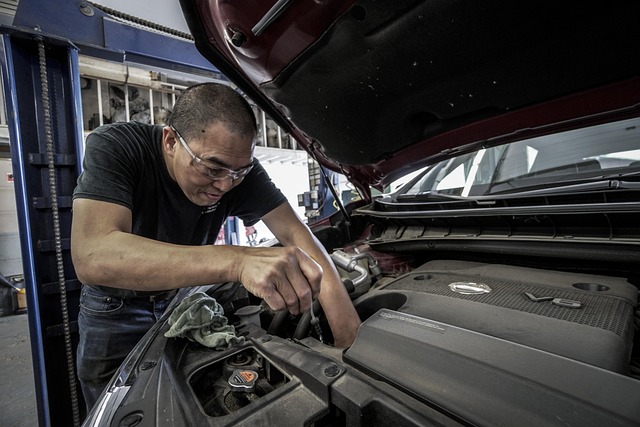The ADAS system verification process involves multi-step testing to ensure advanced driver assistance technologies operate safely in real-world conditions, including defining test scenarios, simulations, and dynamic tests. It considers sensor accuracy, algorithms, and responsiveness, indirectly accounting for vehicle body damage. This rigorous testing is crucial for maintaining driver trust, resale value, and consumer confidence, despite challenges like increased costs and limited after-market support.
The integration of Advanced Driver-Assistance Systems (ADAS) is transforming the automotive landscape, enhancing safety and driving experiences. However, the effectiveness of these systems relies on meticulous verification processes. This article explores the critical role of ADAS system verification in influencing vehicle resale values and fostering buyer trust. We dissect the benefits and drawbacks for resellers and buyers alike, offering insights into how verified advanced safety features can become a competitive advantage in the market while ensuring consumer confidence.
- Understanding ADAS System Verification Process
- Impact on Vehicle Resale Value: Pros and Cons
- Building Trust Through Verified Advanced Safety Features
Understanding ADAS System Verification Process

The ADAS (Advanced Driver Assistance Systems) system verification process involves rigorous testing and validation to ensure these sophisticated technologies function safely and reliably in real-world driving conditions. This verification is crucial as ADAS features, such as adaptive cruise control, lane departure warning, and automatic emergency braking, play a pivotal role in enhancing vehicle safety and driver assistance. The process encompasses several steps: first, defining the test scenarios and criteria based on industry standards and regulatory requirements. Then, engineers conduct extensive simulations and dynamic tests to validate the system’s performance under various conditions. This includes evaluating sensor accuracy, decision-making algorithms, and overall system responsiveness.
During verification, vehicle dent repair and auto body services are considered indirectly as potential impacts from external objects or collisions might affect the ADAS components housed within the vehicle’s bodywork. The integrity of these systems is paramount to maintaining driver trust and ensuring the continued safety of autonomous driving features. Thus, thorough testing and replacement of damaged vehicle bodywork, if necessary, are integral parts of the ADAS system verification process.
Impact on Vehicle Resale Value: Pros and Cons

The ADAS (Advanced Driver Assistance Systems) system verification process plays a pivotal role in shaping the future value of vehicles on the resale market. This rigorous testing ensures that safety-critical systems function as designed, enhancing vehicle reliability and performance. One of the primary benefits for buyers is increased trust, knowing that their car has undergone meticulous scrutiny. This boosted confidence can significantly impact the resale value, making ADAS-verified vehicles more desirable to prospective owners.
However, there are potential drawbacks. The verification process itself incurs costs, which might be passed on to consumers in the form of higher vehicle prices. Additionally, some buyers may not fully comprehend the benefits of ADAS, leading to skepticism about its worth. Moreover, the complexity of these systems could result in limited after-market support for older models, requiring collision repair or vehicle dent repair services to maintain their functionality over time.
Building Trust Through Verified Advanced Safety Features

Building trust is paramount in the automotive industry, especially when introducing advanced technologies like ADAS (Advanced Driver Assistance Systems). ADAS system verification plays a pivotal role in this process by assuring potential buyers that their safety is guaranteed. When an ADAS system has been rigorously tested and verified, it instills confidence in customers who value peace of mind on the road. This trust becomes even more crucial when considering the long-term resale value of vehicles equipped with these cutting-edge features.
A car’s reputation for reliability and safety extends beyond its initial purchase. Verified ADAS systems contribute to a vehicle’s overall appeal, ensuring that owners don’t have to worry about unexpected repairs or malfunctions. This is particularly relevant in the case of luxury vehicle repair, where precision and advanced technologies are common. By prioritizing ADAS system verification, manufacturers can prevent potential issues, enhance customer satisfaction, and maintain the value of their vehicles, even when exposed to everyday wear and tear, including minor car scratch repair or more extensive vehicle collision repair scenarios.
ADAS system verification plays a pivotal role in shaping the future of vehicle resale and consumer trust. By rigorously testing and validating advanced safety features, dealers can offer buyers peace of mind, enhancing the overall resale value of vehicles equipped with these technologies. This process not only ensures the reliability and performance of ADAS but also fosters confidence among consumers, recognizing verified systems as game-changers in traffic safety. As the digital era advances, understanding and implementing effective ADAS verification procedures will be crucial for maintaining high standards in the automotive industry.




